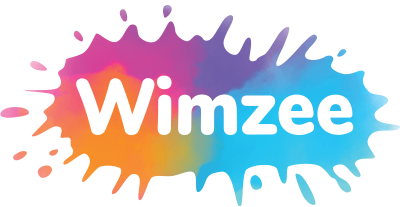As we stand at the crossroads of education and innovation, the landscape for educators is transforming swiftly. Embracing the winds of change, tomorrow’s educators need to cultivate a repertoire of skills that resonate with both current and future demands. From harnessing digital artistry to integrating cutting-edge technologies like AI in classrooms, this blog explores the skills that are becoming crucial for educators to thrive in an ever-evolving educational environment.
The Evolving Demand for Creative Education
In recent years, the integration of technology in education has sparked significant shifts in teaching methodologies, with profound implications on the demand for innovative teaching skills. Technological advancements are reshaping educational environments, fostering a growing need for educators who can navigate this new terrain adeptly.
Technological Impact on Education
The influx of digital tools and resources in classrooms has opened new avenues for teaching and learning. Technologies such as AI are increasingly used to automate routine tasks like grading and lesson planning, which allows educators more time to engage directly with students. This shift emphasizes the importance of educators who are not only tech-savvy but also capable of critical thinking and creativity in using digital tools to enhance learning experiences.
Demand for New Skills
As education systems evolve, the skill set required of educators is also changing. There's a rising demand for skills that support digital fluency and the ability to foster an engaging, interactive learning environment. The OECD highlights the necessity for educators to develop abilities that guide students towards responsible, ethical actions and creative ingenuity. Moreover, educators now need to be proficient in creating immersive, technology-enhanced learning experiences that go beyond traditional teaching methods (Stanford News).
These changes are part of a broader trend where creative education is gaining prominence. This trend is not just about integrating new technologies but also about rethinking how education can be more responsive and relevant to the challenges of a rapidly changing world (UNESCO). As we move forward, the ability to adapt and innovate becomes crucial for educators. This dynamic shift is creating a fertile ground for the development of new educational practices that prioritize creativity, critical thinking, and technological integration.
Key Skills for Tomorrow’s Educators
Today's educators face a rapidly evolving educational landscape, demanding a unique blend of digital and creative skills to effectively teach and inspire future generations. From digital artistry to coding for kids, music technology, and sustainable design, these in-demand skills are shaping the future of education, making it crucial for educators to adapt and excel in these areas.
Digital Artistry and Technology Integration
The ability to integrate digital tools into the classroom goes beyond basic tech literacy; it involves using technology to enhance creativity and engagement. Digital artistry, for example, is not just about understanding graphic design or video editing software, but also about using these tools to create compelling, educational content that resonates with students (MS Learn). The integration of music technology in education also plays a critical role, as it encompasses not only knowledge of musical concepts but also the use of digital tools to compose, perform, and analyze music (TECHCOMMUNITY.MICROSOFT.COM).
Coding for Kids
Coding has become a fundamental skill that is not only about programming but also about teaching problem-solving, logical thinking, and creativity. Educators equipped with this skill can introduce students to the basics of coding through platforms like Microsoft's MakeCode and Minecraft, which provide interactive and engaging ways to learn programming while building critical thinking skills (Microsoft Cloud).
Sustainable Design and Environmental Education
As environmental concerns continue to grow, there is a pressing need for educators who can incorporate sustainable design and environmental science into their curriculums. This includes teaching students about sustainable practices and the impact of human activities on the environment, as well as encouraging innovative thinking to solve environmental challenges (iteach). Educators with expertise in this area are increasingly in demand, as they play a crucial role in shaping future generations to be environmentally conscious citizens .
The Importance of Creativity and Technological Proficiency
The blend of creativity and technological proficiency is essential for modern educators. Programs like Microsoft's AI Bootcamp for Educators are pivotal, as they offer educators training in AI and machine learning, equipping them with the skills to teach these advanced technologies effectively (MS Learn). Furthermore, platforms like LinkedIn Learning and Microsoft's various educational initiatives provide pathways for educators to continuously update their skills and stay relevant in their teaching practices.
In summary, the skills required of tomorrow's educators extend well beyond traditional teaching methods. They encompass a diverse range of capabilities that blend technological proficiency with creative and critical thinking, preparing students not just for academic success but for lifelong learning and adaptation in a rapidly changing world.
Integrating Technology in Teaching
Integrating technology into teaching is no longer just an option but a necessity, transforming not just how we teach but also enhancing student learning and engagement. The current landscape presents a wealth of digital tools and innovative teaching strategies that educators can employ to not only meet but exceed their educational objectives.
Practical Examples of AI and Digital Tools in Teaching
One of the most impactful ways that technology is being integrated into teaching is through the use of AI and digital tools. These technologies are not just supplementary; they're becoming central to creating more effective, engaging, and personalized learning environments.
AI Tools: AI can significantly enhance the educational experience by automating administrative tasks like grading, thus freeing up time for educators to engage more deeply with students. Additionally, AI can provide personalized learning experiences through adaptive learning technologies that cater to the individual needs of students (Stanford News).
Virtual and Augmented Realities: Technologies like virtual reality (VR) and augmented reality (AR) offer immersive learning experiences that are particularly effective in subjects like history, science, and geography. For example, virtual field trips can transport students to ancient Egypt or the Amazon rainforest, providing a rich context that textbooks alone cannot offer ).
Gamification and Interactive Learning: Utilizing gamified elements in education can significantly boost student engagement and motivation. Tools like Kahoot allow educators to create interactive quizzes that make learning fun and competitive in a healthy way.
The Growing Importance of Digital Literacy Among Educators
As digital tools become more embedded in education, the role of digital literacy as a fundamental skill for educators cannot be overstated. It's crucial for teachers not only to be able to use these technologies effectively but also to understand their implications on learning and student engagement.
Continuous Professional Development: Educators need ongoing training to keep up with the latest technological advances. Professional development programs should include hands-on training in the latest educational technologies, from LMS systems to AI and VR applications .
Strategic Implementation: Effective technology integration is about more than just using digital tools; it involves strategic usage that aligns with educational goals. Educators must learn to choose the right technology for the right purpose, enhancing learning outcomes while avoiding technology overload.
Critical Thinking and Ethical Considerations: With the integration of technology, educators must also cultivate critical thinking skills in their students, making them not just users but also critical analyzers of technology. This includes understanding the ethical implications of technology use (Edutopia).
In conclusion, the integration of technology in teaching is transforming educational environments across the globe. By embracing these technologies, educators are not only enhancing the learning experience but are also preparing students for a future where digital literacy is paramount. As we continue to navigate this digital era, the role of educators becomes increasingly complex and crucial, requiring a continuous commitment to learning and adapting new tools for the enhancement of education.
Preparing Educators for a Digital Future
As the educational landscape shifts towards a more digital-centric approach, educators are finding it imperative to continually update their skills to stay relevant and effective. Training and professional development play a crucial role in this transition, providing educators with the tools they need to harness the power of technology and adapt to new teaching environments.
Training and Development for New Skills
Professional development for educators has evolved significantly, particularly with the integration of technology in education. Programs are now designed to help teachers not only keep up with digital tools but also to enhance their pedagogical skills. For example, programs like the Early Childhood Technology (ECT) certificate from Tufts University focus on developing educators' abilities to use technology in developmentally appropriate ways, fostering creativity and engagement among young learners.
Further, institutions like Microsoft offer comprehensive training through their Microsoft Educator Community, which provides free online training and promotes global collaboration among teachers. This initiative helps educators develop their technological competencies, preparing them for both current and future educational challenges (Microsoft Cloud).
Role of Continuous Learning and Adaptability
The necessity for continuous learning in the education sector cannot be overstated. Educators must embrace lifelong learning not just to enhance their teaching methods, but also to foster a culture of curiosity and innovation among their students. Initiatives like SkillsFuture for Educators in Singapore exemplify this approach by encouraging educators to continually develop skills across various domains such as assessment literacy and e-pedagogy, ensuring they remain adaptive and proficient in their practices.
Moreover, the professional growth of educators is increasingly linked to their ability to integrate creative and technological processes into the curriculum. This integration not only enriches the learning experience for students but also positions educators at the forefront of educational innovation. Programs that focus on specific competencies, such as the NEA's micro-credential certifications, offer educators targeted opportunities to refine skills that are directly applicable to their classroom settings(USD ProEd).
In summary, the future of education demands a robust commitment to professional development and adaptability from educators. By engaging in ongoing training programs and embracing the rapid technological advancements, educators can ensure they are well-equipped to meet the diverse needs of their students and the challenges of the digital age. This approach not only enhances their professional capabilities but also significantly impacts the educational outcomes of their students.




